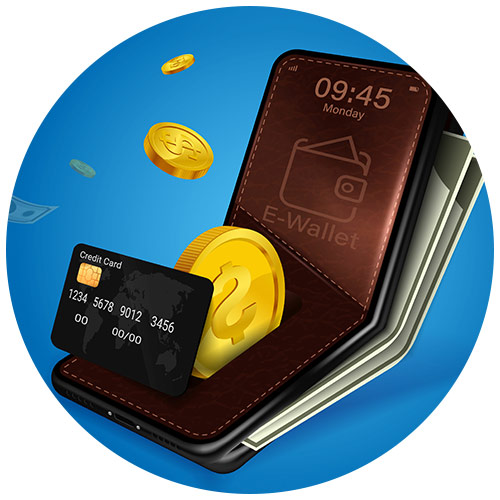How to Find Cryptocurrency Processors and Payment Gateways
Cryptocurrencies have been gaining popularity over the past few years, with more businesses than ever before accepting cryptos like Bitcoin and Ethereum as a form of payment. In fact, more than 15,000 businesses around the world were accepting Bitcoin as of June, 2022. That said, not all businesses have the necessary resources to handle cryptocurrency transactions themselves.

What are Cryptocurrency Payment Processors and Gateways?
Cryptocurrency payment processors and gateways are third-party services that handle the technical side of crypto transactions. They give merchants the power to accept a range of cryptocurrencies without having to manage complicated crypto wallets or other technologies.
Crypto payment processors work in the same way as traditional payment processors and gateways. When customers make purchases using cryptocurrency, the payments are sent to the payment processor or gateway. Once the processor receives the payment, it’s then converted into fiat currency, such as USD, EUR, or CAD, and then deposited into the merchant’s bank account.
How to Find Trustworthy Cryptocurrency Payment Processors and Gateways
There are several ways you can search for a reputable crypto payment processor but first and most importantly, you, the merchant, need to determine what types of cryptocurrency you’ll be accepting. As of 2023 there are more than 22,000 cryptocurrencies changing hands in the marketplace. Some of the more common ones you’ll likely want to consider include:
- Bitcoin (BTC)
- Ethereum (ETH)
- Litecoin (LTC)
- Dogecoin (DOGE)
- Ripple (XRP)
- Lumens (XLM)
- USD Coin (USDC)
Once you know what cryptocurrencies you’d like to deal in, take time to do your research and find a payment gateway you can work with.
- Do online research: Search for directories and reviews of cryptocurrency payment processors. Take time to look into the fees, features, and supported cryptocurrencies for each to determine which might be a good fit.
- Network with similar businesses: If you have contacts in the business world who are already accepting cryptocurrencies, ask them which payment processors or gateways they’re currently using. This enables you to receive first-hand feedback and details about fees, ease of use, and customer support.
- Contact your e-commerce platform: If you’re using an e-commerce platform to sell your products and services, inquire about any crypto payment processing services they might have available or be able to recommend. Many e-commerce platforms, including Shopify and WooCommerce, can be integrated with crypto payment processors and gateways, making it easy to accept crypto payments using the same payment gateway you’ve already got in place.
Advantages and Disadvantages of Accepting Cryptocurrencies
One of the perks of accepting cryptocurrencies is the speed at which the average crypto transaction settles and the low fees associated with processing it. The process involves minimal intermediaries, which makes for an easier transaction for both merchants and customers.
For merchants, the transparent blockchain networks that underpin crypto payment gateways offer protection against chargeback fraud. On the other hand, fiat payment gateways put merchants at risk of not receiving payment after a buyer’s card has been processed.
Despite these benefits, it’s important to note that crypto payment gateways act as a go-between for merchants and customers, meaning that settlements aren’t fully decentralized. As a result, if issues arise with crypto payment processors, merchants may experience delays in payments until the problems are resolved.
Are Cryptocurrency Payment Processors and Gateways Safe?
Crypto payment processors can be completely safe but just as with any financial transaction, risks do exist. These include hacks, fraud, and technical glitches that could result in lost funds or delayed transactions.
Before you decide to work with a crypto processor, it’s important to do your due diligence and ensure you’ve selected a reputable, well-established payment provider with a proven track record of security and reliability.
Diverse Payment Processing is Smart Processing
Fill out our free and quick merchant account application and let us match you with many banks that want your business.